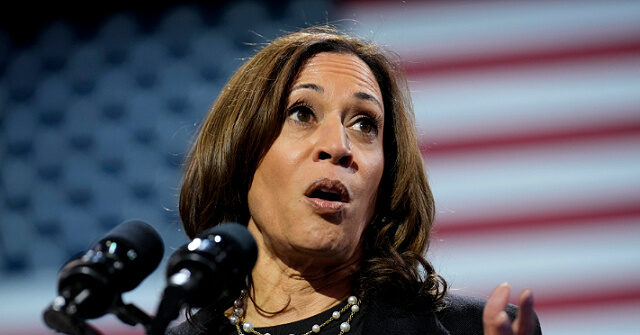In a recent interview on PBS’s “Firing Line,” Pennsylvania Governor Josh Shapiro discussed the evolving energy positions of Vice President Kamala Harris ahead of the 2024 Democratic presidential election. He expressed that it’s his interpretation that Harris altered her views due to a recognition of the significant role that domestic energy—specifically natural gas—plays in fortifying both the economy and national security of the United States. While Shapiro acknowledged a change in Harris’s stance on key energy issues, including fracking and vehicle regulations, he emphasized that Harris herself should clarify the underlying reasons for her shift. This moment underscored the growing complexity of political stances, as candidates navigate public sentiment and evolving national priorities.
Host Margaret Hoover pressed Shapiro on the nuances of Harris’s changes, linking her positions to perceived political opportunism. Shapiro responded affirmatively to the idea that it signifies strength for a candidate to adapt based on new insights, encouraging a narrative that embraces evolution over rigidity. He cited Joe Biden’s long-standing advocacy for increased domestic energy production as a pertinent backdrop to Harris’s transformation. Shapiro’s remarks suggest that he sees these shifts not merely as politically expedient but as a reflection of more profound ideological learning, advocating for a productive dialogue on essential energy policies.
Shapiro’s views encapsulate a broader Democratic narrative that emphasizes the importance of energy independence and security, particularly in the context of international tensions and domestic economic challenges. The Governor celebrated Pennsylvania’s status as a net energy exporter, asserting pride in the state’s energy contributions amid nationwide discussions about climate change and renewable energies. In doing so, he illustrated a commitment to balancing economic priorities with environmental concerns, a duality that many policymakers grapple with today.
Despite Shapiro’s supportive stance, Hoover raised a crucial counterpoint about public skepticism regarding Harris’s motivations. She questioned whether her shift resulted from political calculations rather than a genuine assessment of national and economic security needs. Shapiro refrained from speculating on Harris’s motives, ultimately stating that it was for the Vice President to provide clarity. He advocated for scrutiny of both political figures, contrasting Harris’s deliberative evolution with former President Donald Trump’s erratic policy shifts, a comparison designed to frame obedience to evolving data as a virtue rather than vice.
The conversation further revealed differing approaches within the party to issues of personal and political evolution. Shapiro highlighted Senator Bob Casey’s transparency regarding his own shifts in stance on sensitive issues, like abortion, indicating a preference for open communication about the reasoning behind such changes. This introspective perspective contrasts with more defensive reactions often observed in the political arena, where leaders may hesitate to articulate shifts for fear of backlash.
In summary, the interview encapsulated a significant theme in contemporary politics: the intersection of political evolution, public perception, and policy integrity. Shapiro’s insights positioned Harris’s adaptations as a sign of political growth, steeped in a broader ethical framework that values public dialogue and national security. However, it also acknowledged the skepticism that exists regarding lawmakers’ motives, emphasizing the importance of directly addressing constituents’ concerns in an age where authenticity and transparency are paramount to political legitimacy. Overall, this exchange illustrates the ongoing debate surrounding energy policy and its implications for both political strategy and effective governance.

